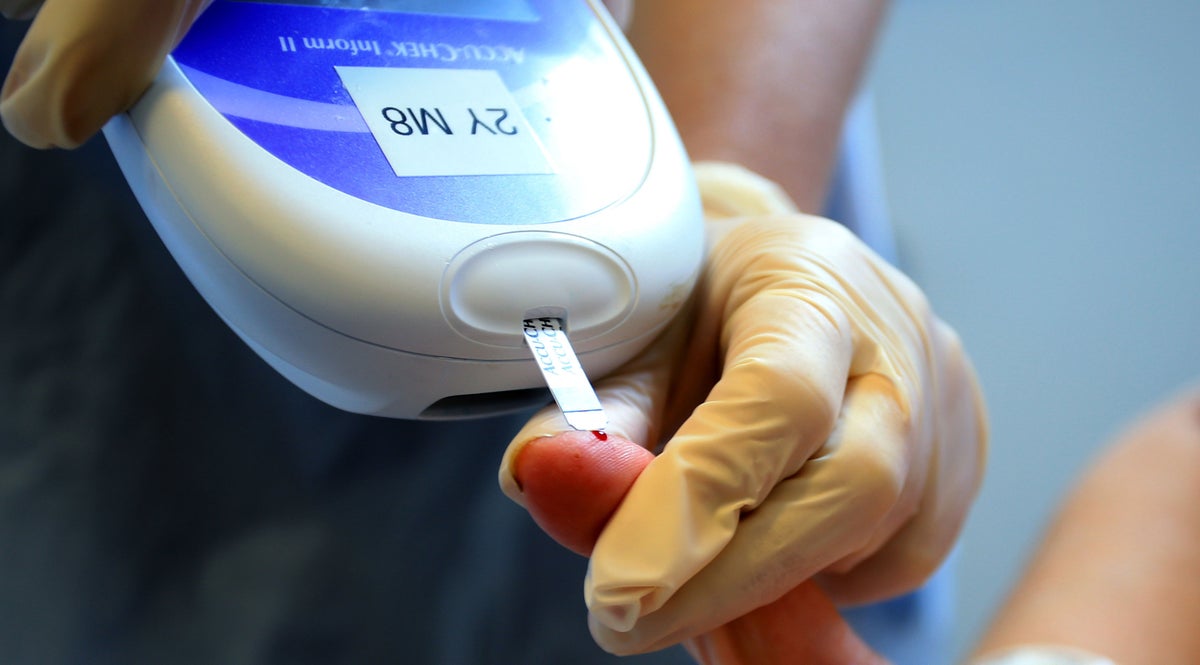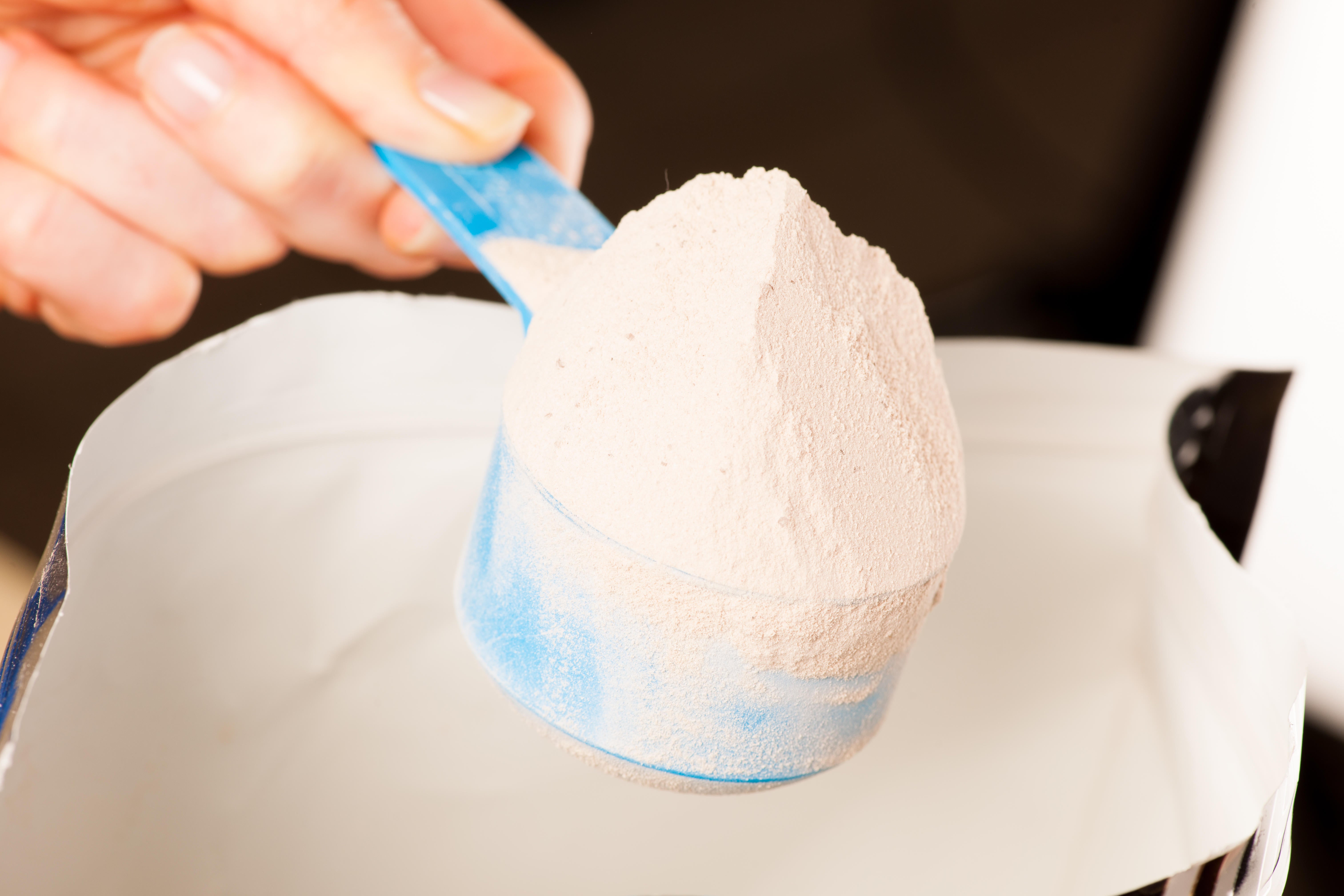
Whey protein drinks before a meal can help diabetics control their blood sugar levels, according to new research.
Scientists believe the drinks slow down how quickly food is digested and stimulate hormones to prevent sugar levels rising so quickly.
In the Newcastle University study, people with Type 2 diabetes drank a pre-made shot containing a low dose of whey protein before eating a normal meal.
They were monitored for a week as they went about normal daily life.
People were able to stick to the regime and liked the idea of having a convenient, tasty, small pre-made drink that could be carried with them and taken before meals
The same participants were given control shots containing no protein for a further week, and had blood tests to measure the results against each other.
The test showed that glucose levels were much better controlled when taking the whey supplement before meals, with an average of an extra two hours per day of normal blood sugar levels compared with the no protein week.
Dr Daniel West, principal investigator at Newcastle University’s Human Nutrition Research Centre and Diabetes Research Group, said: “While previous studies for a few hours in the lab have shown the potential for this dietary intervention, this is the first time that people have been monitored as they go about normal life.
“We believe the whey protein works in two ways, firstly, by slowing down how quickly food passes through the digestive system and secondly, by stimulating a number of important hormones that prevent the blood sugars climbing so high.

“As we see growing numbers of people around the world developing diabetes, investigating the potential of alternatives to drugs such as food supplements becomes more important.”
PhD student Kieran Smith, who oversaw the glucose monitoring and analysed the data, said: “People were able to stick to the regime and liked the idea of having a convenient, tasty, small pre-made drink that could be carried with them and taken before meals.”
The team intend to further explore the benefits of non-medical interventions, running the study on a larger scale and for a longer period of up to six months.
They also plan to look at alternative proteins, such as those that come from plant sources such as peas, fungi and potatoes, to open up options for vegan and religious dietary needs.







